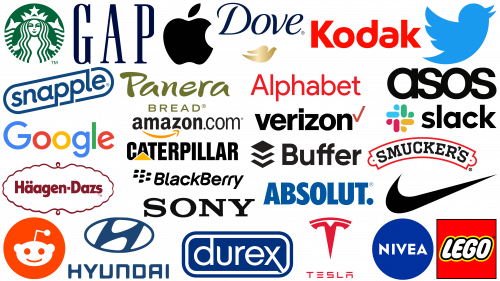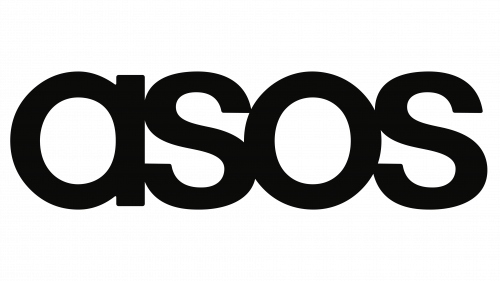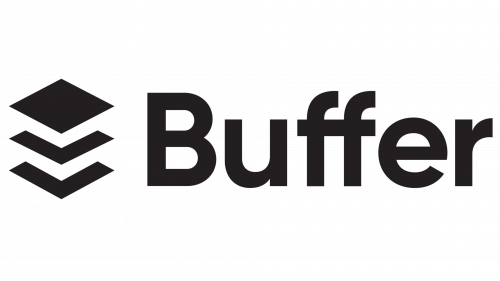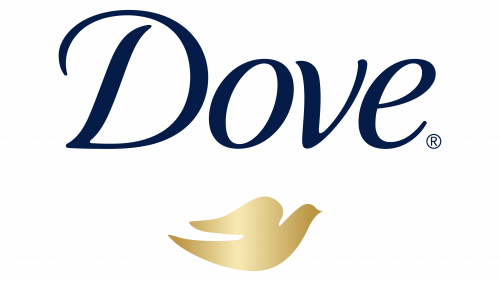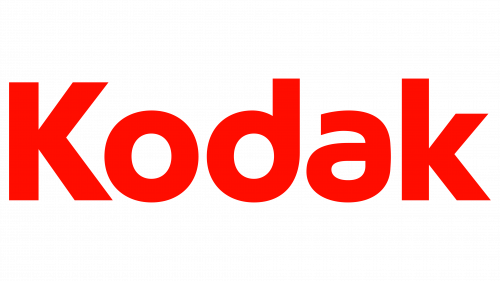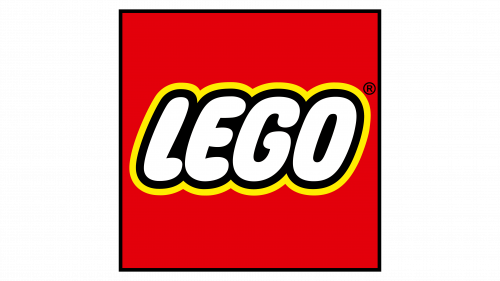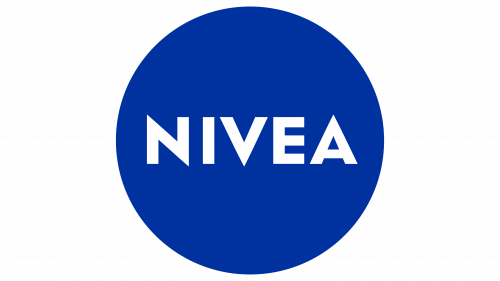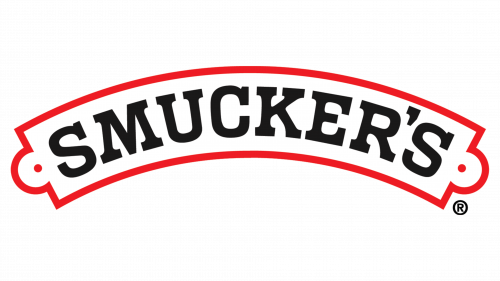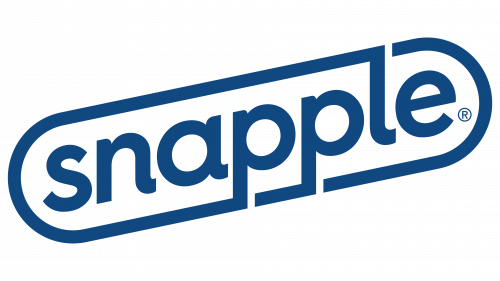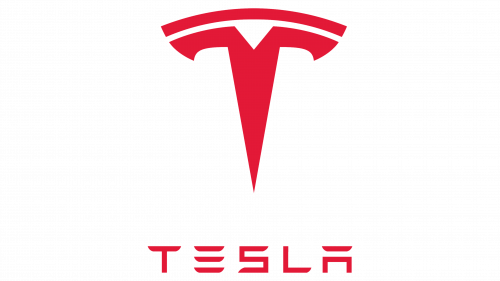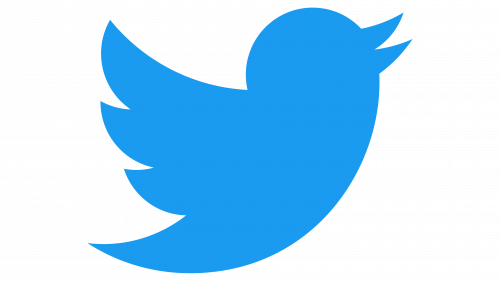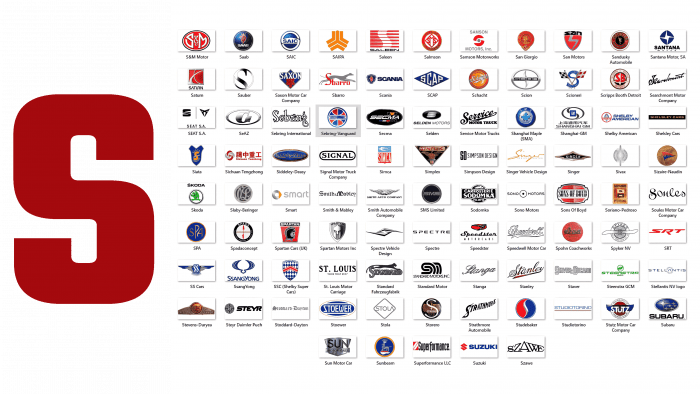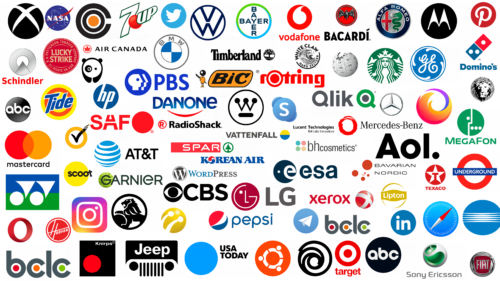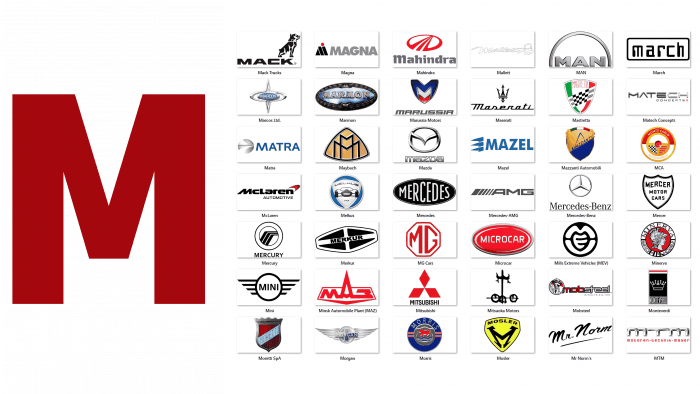The global marketplace is replete with examples of well-chosen brand names that resonate with audiences. While these names are unique to each individual business, they provide invaluable insight into the naming process for those looking to christen their company.
Choosing the right name for a company can be a daunting task. This decision sets the tone for various aspects of a brand, including its visual presentation, packaging, and even logo design. Very importantly, the name becomes the main identifier for customers, so its choice must be an educated one.
The world’s most successful brand names
Names have tremendous power when it comes to branding. While visual elements such as logos and products play an important role, a company’s name is key to its identity and success. It serves as a beacon, conveying important information about the company to the target audience. Through the name, the company reveals its core values, heritage, and commitment to the future.
Some brands choose direct, descriptive names that vividly capture their essence and purpose. Such names serve as clear signposts that allow customers to quickly understand what the company stands for. On the other hand, some names are more enigmatic, encouraging audiences to dig deeper and interpret. Such names are designed to evoke curiosity and engagement.
Given the sheer number of brand names that the market is saturated with, choosing the perfect name is akin to finding a gem in a sandy desert. The search may seem daunting, but understanding the origins and inspiration behind some of the world’s famous brands can be a guiding light for those embarking on this journey.
Absolut
Among the leading brands that embody impeccable business naming strategies is Absolut. This name is distinctive and rolls off the tongue with ease, making it easily recognizable in a crowded marketplace. The slight deviation from the common spelling of the word “Absolute” gives it a uniqueness that not only helps in brand building but also adds intrigue.
The term carries an aura of luxury, bringing to mind a premium luxury product. Such a name naturally lays down high expectations, positioning the brand as an uncompromising and superior product.
Choosing “Absolut” instead of the traditional “Absolute” is a strategic move, unafraid to stray from the familiar.
The name “Absolut” is a master class in the field of naming. It encapsulates the essence of the brand and, at the same time, stands out in the market with its uniqueness.
Alphabet
Alphabet, as a holding company, plays a key role in managing an impressive array of Google’s significant endeavors, including but not limited to innovative home solutions such as Nest, healthcare projects such as Calico, and investment ventures exemplified by Google Ventures. The name “Alphabet” may not be as high-profile as other well-known brands, but its credibility in the corporate sphere is undeniable.
The term “Alphabet” creates a sense of comprehensive scale and inclusiveness. It denotes the vast number of diverse brands that find their home under its umbrella. The name symbolizes the spectrum, emphasizing its versatility and possibilities.
Amazon.com
Amazon.com is an e-commerce giant recognized by all. It was originally considered to be called “Kadabra,” but a successful proposal forced founder Jeff Bezos to drop the name due to its phonetic similarity to the word “corpse.”
The name “Amazon,” inspired by the majesty of the Amazon River, symbolizes the vastness and diversity of the online platform’s offerings. Just as the Amazon River dominates in volume and flow, the company sought global dominance in the e-commerce sector.
While the company’s name may not be a direct reference to commerce, its resonance is undeniable. It evokes images of vastness, power, and unrivaled greatness that the company embodies in digital commerce.
Apple
Considered a titan in the technology sector, the name Apple is an intriguing choice for such a forward-thinking company. At first glance, the fruit name doesn’t immediately correlate with the tech giant, but if you delve into its symbolism, you’ll discover a multi-layered meaning.
The word “Apple” conjures up associations with nourishment, vitality, and natural growth. This concept organically combines with the company’s desire to innovate, create products that enrich everyday life, and promote growth in various spheres.
The allusion to Isaac Newton’s apple-induced epiphany about gravity adds another layer of significance. This reference subtly shows the brand’s commitment to discovery, enlightenment, and pushing the boundaries of what is possible. In a crowded marketplace, concise, memorable names filled with depth stand out, and Apple is a prime example of this.
ASOS
In the fashion industry, ASOS stands out as a significant and recognizable brand. The name of this famous clothing company is not just a set of letters; it carries a story that reflects the brand’s roots. Derived from the phrase “As Seen on Screen,” the name reflects the company’s core mission: to offer clothing inspired by celebrity fashion, allowing consumers to emulate the styles they admire on screens.
In the ever-evolving world of branding and marketing, the importance of a concise and memorable name became apparent. The company translated its original name into a more concise form: ‘ASOS.’ This easy-to-pronounce acronym firmly established the brand in consumers’ minds.
Shortening the name to “ASOS” gave an additional advantage. By creating a completely new term, the company positioned itself favorably in terms of brand differentiation and trademark protection. The new moniker eliminated possible confusion or association with other existing word combinations and allowed ASOS to create its unique identity in the fashion industry. The decision to shorten the name promoted brand recognition and gave ASOS a distinctive place in the crowded fashion market.
Blackberry
Blackberry, a major player in the telecommunications sector, chose a name that echoed the distinctive feature of its device: tiny buttons resembling grouped drupelets on blackberry fruit. While modern audiences may not be as familiar with the brand, the name was a testament to smart branding.
Choosing to name a technology brand after a fruit seems unconventional. Like Apple, Blackberry took this approach to bridge the gap between the complexity of technology and the familiarity and simplicity of everyday life. This subtly conveys the idea that their product, while advanced, is intuitive and easy to use.
Fruit symbolizes nourishment, growth, and renewal – attributes that any company would want to be associated with. In the case of Blackberry, the name not only hints at its unique design but is also meant to position the brand as fresh, innovative, and constantly evolving.
In the fast-paced world of technology, where new gadgets are often perceived as impersonal or complex, associating with something as universal and intimate as fruit can be a brilliant strategy.
Buffer
In the ever-evolving realm of digital platforms, brand names play a key role in shaping a business’s niche. Buffer is a prime example of this principle. Having emerged relatively recently in the technology arena, this brand has quickly gained recognition and cemented its name in the minds of many.
The genius of the name “Buffer” lies in its apt description. It accurately captures the essence of how the platform works. The platform allows users to queue content in social networks and send it out at set intervals. The ability to buffer posts provides an intuitive and efficient way to manage social media.
The simplicity of the name contributes to its memorability. It is direct, uncomplicated, and relates well to the service it offers. Buffer is an example that emphasizes the importance of a thoughtful brand name in creating a company’s identity in the digital age.
Caterpillar
“Caterpillar” is an example of how unpredictable yet effective branding can be. Although the word “caterpillar” primarily evokes images of nature, its association with a manufacturer of heavy construction equipment and automobiles seems counterintuitive at first glance. The story behind the origin of this brand’s name is evidence of a well-thought-out strategy. The inspiration for the choice of the name was a casual comment by a photographer who noted that the movement of machinery resembles a caterpillar.
The initially unconventional choice proved to be a valid one: it resonated with the industry and even evolved into a more concise version known as “Cat.” This shortened version serves a dual purpose: it is easy to remember and carries qualities such as agility, grace, and elegance, which are universally associated with feline traits.
The journey of a brand name from an observation-based description to an enduring symbol illustrates the transformative power of apt branding. The name “Caterpillar” has become not just a label but an embodiment of the company’s defining characteristics – reliability and sustainability.
Dove
Dove, a renowned beauty and skincare company, stands out by emphasizing self-love and body positivity in its products. The brand’s name carries a deep symbolism recognized around the world.
The dove is a symbol of purity, which speaks to the gentleness and safety of the brand’s products. This avian symbol echoes sentiments such as peace, love, and tenderness that any cosmetics brand would want to be associated with. By utilizing such strong imagery, Dove successfully creates an emotional connection with its target audience, ensuring that the brand is perceived as more than just a skincare provider.
The softness of the name “Dove” reflects the gentle care that the brand promises to offer its users. In a market saturated with beauty products, a name that evokes a sense of comfort and safety can significantly influence consumer choice. Dove’s branding strategy, starting with the name, is a master class in effectively communicating the company’s values and vision to the target audience.
Durex
Globally recognized, the Durex brand evokes an instant impression of reliability and safety. The name itself is carefully crafted to provide peace of mind and is a compact embodiment of the brand’s core values. While the name may evoke thoughts of “ruggedness” upon first encounter, it is an acronym that encapsulates the key elements of the brand’s mission.
Durex combines the words “Durable,” “Reliable,” and “Excellence,” each of which is a cornerstone of the company’s ethics. By combining these three essential qualities, the brand name establishes a direct connection with the consumer, answering their most fundamental questions when choosing contraceptives.
Naming strategy goes beyond mere memorability or market appeal. Consumer trust is paramount in the highly competitive personal care and health products industry. The Durex name is associated with enduring reliability and excellence and is an important brand asset.
Gap
The brand name Gap is all about brevity yet deep subtext. Drawing inspiration from observations of society, its name alludes to the generational differences often seen in styles and preferences. This witty nomenclature hints at the fashion gap that exists between age groups.
The brand name is notable not only for its simplicity but also for its consonance with a challenge that many in the fashion industry face: catering to the changing tastes of different generations. By choosing this name, Gap is subtly positioning itself as a bridge, seeking to cater to the preferences of a younger audience while at the same time recognizing the existing fashion norms of an older generation.
The term “Gap” globally refers to a space or interval, which in this context metaphorically refers to the space between evolving fashion trends and timeless classics. The name Gap is a strategic combination of simplicity and relevance that sheds light on the company’s mission to fulfill the multifaceted needs of fashion-conscious people, regardless of generation.
Branding a business often involves a careful process of choosing the perfect name. Sometimes, chance plays a role in this process, as evidenced by Google’s journey to the name. Initially, the tech giant settled on the word “Googol,” a mathematical term meaning one followed by one hundred zeros. This choice was quite appropriate and emphasized the vast expanse of information that the search engine was supposed to focus on.
But fate has ordered otherwise. A spelling error during domain registration led to the fact that “Googol” turned into “Google.” Instead of correcting this oversight, Larry Page found an unexpected charm in it. He recognized the uniqueness of the name and decided to keep it. Its phonetic simplicity, adaptability, and distinctive character made it special.
Google is more than just a name. It has outgrown its brand status and become synonymous with online search. This story of an accidental name choice emphasizes that sometimes unplanned moments can lead to the most iconic branding decisions.
Haagen-Dazs
Branding often goes beyond traditional naming strategies. Sometimes, an unconventional or fantasy approach can resonate more with the target audience. A prime example is a brand that chose a name with a hint of a “Danish” aura, even though umlauts are not commonly used in Denmark.
The creators of this brand took a calculated risk. Their choice was not about geographical accuracy but about creating individuality in an oversaturated market. Against the backdrop of a crowded ice cream market, this brand sought to stand out by presenting itself as a luxurious and indulgent choice, hinting at providing consumers with a rich experience unlike any other.
Departing from the familiar path and utilizing novelty can go a long way. The name of this brand not only attracted attention with its foreignness but also effectively conveyed the high-end quality of the product. The name has become a powerful tool to shape perceptions and influence consumers to choose this brand.
Hyundai
Hyundai is a name that sounds harmonious when pronounced and has a certain phonetic appeal that makes it memorable. Behind the apparent simplicity of the name, there is a deep meaning embedded in its meaning. If you delve into its etymology, you will find that the word “Hyundai” is synonymous with the word “modernity.”
This automotive titan, known for pushing the boundaries of technology and car design, lives up to its essence and name. By choosing a name that stands for modernity, Hyundai emphasizes its commitment to innovation and its desire to remain at the forefront of the automotive industry. This strategic nomenclature not only differentiates Hyundai from its competitors but also forms a connection with consumers who are looking for cutting-edge automotive solutions.
Kodak
In the complex business of brand naming, individual tastes play a crucial role. The iconic Kodak brand is a vivid illustration of this. The name was not taken from the dictionary or borrowed from another context; it was invented. George Eastman, the creator of Kodak, was very fond of the letter “K” and believed that it could make a strong and lasting impression.
The uniqueness of the name lies not only in its novelty but also in its auditory elements. The letter “K” at both ends makes a clicking sound when pronounced. This sound subconsciously resembles the clicking of a camera shutter, making it appropriate for a company name specializing in photography.
The personalized nature of the name also offers a number of strategic advantages. Since the term was coined, registering it as a trademark posed no problem. Due to its originality, the name was easily fixed in the minds of consumers, which increased its memorability.
The story behind the creation of the Kodak name is a compelling example of how personal preference and witty observations can intersect to create a memorable corporate identity that resonates with a company’s core business.
Lego
One of the most iconic names in the toy industry, “Lego” carries a legacy of seamlessly intertwining play and learning. Rooted in Danish etymology, this concise name comes from the words “Leg Godt.” Translated into Russian, this phrase reflects the essence of joyful play and is the brand’s founding principle.
Lego’s nomenclature emphasizes its commitment to creativity and is a testament to ingenious branding. The brevity of the name makes it extraordinarily memorable, making it stick in people’s minds for a long time.
The name represents the physical and cognitive building blocks from which a child develops. Lego emphasizes the symbiotic relationship between play and learning by emphasizing the importance of good play. This title resonates deeply with parents and educators alike, who recognize that play is a vital component of child development.
Nike
The world-famous Nike company exemplifies branding excellence by effectively combining its name and symbolic logo. The brevity and simplicity of the name make the word “Nike” easily recognizable, contributing to its instant recall by consumers.
Inspired by Greek mythology, the brand is named after the goddess of Victory, which is fitting for a brand dedicated to empowering people to engage in sports and fitness.
The iconic swoosh logo, synonymous with Nike, is rooted in the same mythology. Inspired by the wings of a goddess, it embodies the idea of movement, speed, and triumph. Nike’s naming and design strategy is a testament to the power of meaningful branding. By infusing its name and logo with values and stories aligned with the company’s mission, Nike has created a legacy that goes beyond just sportswear and resonates deeply with a global audience.
Nivea
The beauty industry is filled with brands, each striving to deliver their essence and promises to consumers. Prominent among them is the Nivea brand. The brand’s name comes from the Latin word “Niveus,” meaning “purity,” which subtly conveys its desire to offer products filled with natural purity.
Such terminology is no coincidence. This choice epitomizes the brand’s commitment to harnessing nature’s bounty for skincare, ensuring the purity of ingredients that the name suggests. Nivea emphasizes its commitment to providing consumers with skin-caring products that come from a place of true purity.
The name “Nivea” is more than just a label; it is a testament to the brand’s ethics. It evokes an image of freshness, integrity, and superior quality – all things consumers often look for in skincare products. In the vast realm of beauty and skincare, a name that can succinctly yet powerfully convey such values is truly invaluable. Through thoughtful branding, Nivea has established a trusting relationship with its customers, ensuring they are committed to the purity of each product.
Panera
World-renowned Panera offers a name that seamlessly blends linguistic elements that emphasize its commitment to quality and tradition. The name, in which the Spanish word “pan” for bread is seamlessly intertwined with the Latin “era” for a significant period of time, paints a picture of a timeless commitment to baking excellence.
The name reflects a deep appreciation for the art of baking. The Spanish component emphasizes the essence of the brand – bread that has cultural and nutritional significance around the world. The Latin word “era” conveys continuity and evolution, symbolizing an unwavering commitment to refining and improving the craft. The name doesn’t just convey the essence of the company’s offering; it tells the story of the brand’s evolutionary journey and its unwavering commitment to excellence.
Panera’s naming strategy shows a blend of tradition and innovation, ensuring its popularity among those who appreciate the timeless appeal of bread and the promise of constant evolution in its creation.
In today’s digital age, few platforms have as much influence as Reddit, often referred to as the “front page of the internet.” Immediately striking is the ingenuity inherent in its name, which subtly encourages users with a clever play on words, “Read this.” Such a name signifies the essence of the platform: to put out a plethora of content that is just waiting to be explored and consumed by curious minds.
The brand name goes beyond this clever play on words in English. Drawing on Latin roots, the word “Reddit” resembles a verb meaning “to render” or “to submit for consideration.” This connotation is perfectly in line with the essence of the platform, emphasizing the democratic nature of content submission and approval. Users from all over the world gather here, share, vote, and discuss various topics, stories, and viewpoints.
Through its unique naming strategy, the platform has positioned itself as an indispensable hub for those seeking fresh, user-generated content that fosters a sense of community and shared knowledge in the vastness of the digital world.
Slack
Among the buzzing digital communication platforms, Slack has carved a niche for itself. The name may initially seem like a colloquial term alluding to relaxation or short-term respite, but it has a deeper meaning. If you delve into its acronym, it stands for “Searchable Journal of All Conversations and Knowledge.” This highlights the core functionality of the platform in the best possible way: a centralized hub where conversations and information are easily accessible and searchable.
The name “Slack” represents an environment that lends itself to unhurried discussions, fostering collaboration without rush. Even the simple name promises a space where users can work at their own pace, ensuring that communication is streamlined and stress-free.
As a comprehensive communication tool, it simultaneously reminds users of the platform’s commitment to creating a relaxed atmosphere that makes collaboration efficient and enjoyable. Such is the dual meaning of the name “Slack” – both as a repository of knowledge and as a platform that promotes ease of communication for its users.
Smuckers
In branding, some names effortlessly stand out from the rest, and Smuckers is a prime example of this. The name beckons the listener with its rhythmic pull, conjuring up images of treats.
The phonetic richness of the word “Smuckers” sets it apart from the others. The sustained consonants give it a sonic nuance, allowing it to stand out unmistakably from other brands, such as Welch’s. This sonic distinction allows it to remain memorable in a market saturated with names claiming attention.
The Smuckers’ brand name serves as a masterclass in branding. It demonstrates the power of a name that sounds appealing and resonates deeply with the essence of the product. With its sound and associated imagery, it promises a delightful experience, making it a consistent favorite in the minds of consumers.
Snapple
The Snapple brand has been widely adopted in the consumer goods industry, especially beverages. The brand originally operated under the less catchy name of Unadulterated Food Products. While the original name may have been simple and reflected the company’s dedication to quality ingredients, it lacked the spark needed to be memorable in the minds of consumers.
This led to a change when one of the company’s co-founders came up with the name “Snapple,” inspired by the description of the drink as a “juicy apple.” The new name encapsulates many elements that make it extremely effective for brand recognition. The name effortlessly combines the words “fast” and “apple” to create a new, playful term that immediately resonates with shoppers as creative and descriptive. It tells a short but vivid story about what you can expect from the product.
The name has phonetic properties that make it easy and pleasant to pronounce. Its auditory appeal makes it a topic of conversation, which serves as a form of organic promotion.
The name “Snapple” is “sticky” in the psychological sense: once heard, it is memorable. This is a very important characteristic in a market flooded with different names and brands competing for consumers’ attention. The decision to move from a more casual name to a dynamic name like “Snapple” is not just a rebranding but a strategic choice that has a long-term impact on the success of the brand.
Sony
The Sony brand has become synonymous with technological innovation and excellence, cementing its place in the echelon of globally recognized names. Surprisingly, the origins of this respected name go back to the founding days of the company, when the focus was on pioneering audio technology.
The etymological roots of the word “Sony” go back to the Latin term “Sonus,” which means “sound.” This linguistic connection brilliantly reflected the brand’s core competency in its formative stages. But behind this direct connection lies another dimension to the choice of name.
If you look at the word “Sony” from a more everyday perspective, it resembles “sonny boy,” an informal address often attributed to young men. This strategic fit was no accident. It emphasizes the company’s desire to resonate with a younger and more dynamic audience, which is expected to be the primary consumer of its products. By integrating this subtle cue into the target demographic, Sony ensured that its branding reflected its product set and its ideal consumer.
Sony’s naming strategy includes a combination of technical features and demographic resonance, all packaged into a lively and memorable name. It demonstrates the foresight of the company’s founders. It demonstrates the power of a well-chosen name that resonates with everyone while staying true to its roots.
Starbucks
Starbucks is an iconic brand recognized around the world. The vocabulary of this monumental coffee company is no accident – it is rooted in literary history. The name of the brand is associated with the character of Starbuck, the main helper in Herman Melville’s timeless novel Moby Dick, a nautical adventure. The brand’s emblem, depicting a stylized siren or mermaid, further emphasizes this nautical association.
The Starbucks moniker has a natural cadence that resonates with consumers. It flies off the tongue easily, making it easy to memorize and pronounce. The inclusion of the prefix “Star” in the name carries connotations of perfection and quality, which reflects the brand’s ethics and its desire to set the gold standard in the coffee industry.
The choice of such an original name provided Starbucks with a competitive advantage in the period of its formation. Against the backdrop of the many similar coffee shop names common in its early days, the Starbucks brand became a beacon of uniqueness and innovation. Starbucks took a strong position in the market and transformed the company from a simple coffee shop into a global phenomenon.
Tesla
The Tesla brand has been widely recognized and has become one of the leaders in the automotive and technology industries. Its association with innovation and cutting-edge solutions makes it the epitome of modernity and progress.
The choice of the company name “Tesla” has deep historical and scientific significance. It is a tribute to Nikola Tesla, the brilliant inventor whose pioneering work on the AC power transmission system and the induction motor laid the foundations of the modern electrical world. The name of the company is not just a recognition of past achievements; it is an emblem of the desire to push the boundaries of the possible, as Nikola Tesla once did.
The company’s focus on electric vehicles and sustainable energy solutions blends seamlessly with Nikola Tesla’s legacy. By adopting this name, the brand is making it clear that it aims to revolutionize transportation through cleaner and more efficient methods.
From electric vehicles to energy storage, each of the company’s products emphasizes its commitment to a cleaner future and reduced dependence on fossil fuels. By embracing the spirit of a legendary inventor, Tesla reinforces its vision of leading the way in sustainable technology innovation.
Among iconic brand names, “Twitter” undoubtedly holds a prestigious place. This widely recognized social media platform is a hallmark of digital communications. The brand name captures the essence of the platform’s functionality and its unique value proposition.
Jack Dorsey, co-founder of Twitter, revealed that the brand name came from an intensive dictionary search. They were looking for a name that accurately reflected the characteristics of the platform. The name “Twitter” proved to be the most successful, as it echoes the essence of the platform, allowing for brief and immediate updates reminiscent of birds chirping or fleeting conversations.
The genius of the name choice is evident in its double reflection. On the one hand, it mimics the brevity of the platform, where users exchange short and succinct messages. On the other hand, it reflects the fast, dynamic flow of information that Twitter is known for. Each “tweet” is a brief snippet of information, a quick impulse or thought, which corresponds to the very definition of the word “tweet.”
The name “Twitter” is not just a label but an embodiment of the platform’s ethos. The company has created an environment where users from around the world gather to share, discuss, and dialog in real time, and its name seamlessly reflects this brand essence in the vast space of social media platforms.
Verizon
Verizon, which emerged from the merger of GTE and Bell Atlantic, didn’t limit itself to a combination of its former names. Instead, the company chose a name that would reflect its core principles and the direction of the telecommunications sector.
The name “Verizon” successfully combines the Latin word “veritas,” meaning truth, and the concept of “horizon.” This combination emphasizes the company’s commitment to transparency, reliability, and honesty. The name not only serves as an identifier but also tells a story. It paints an image of a brand that strives to deliver true service and always looks to the future. It subtly hints at a business that values trust and strives to break barriers, paving the way to uncharted territories in telecommunications.
Examples of good brand names
The world of branding is a rich tapestry of diverse names, each carrying its own essence and story. Brands such as Google and Gap have become icons because of names that reflect their ethics and the uniqueness they bring to the marketplace. The potential of a brand name can make or break a brand’s identity, acting as a beacon to attract consumers or deter them by repelling them.
Creating the perfect brand name is certainly a daunting task. It’s not just about putting letters together but also about putting a story, mission, and vision into a few single syllables. This complex process requires creativity, market insight, and often luck.
The task doesn’t end with creating a name. A brand name must also be adaptable and versatile enough to change based on market dynamics and consumer preferences. In an era dominated by digital platforms, brand names need to be web-friendly and easy to find.
Behind every successful brand name is a story of careful thought, trial, and error, and an unwavering commitment to embodying the essence of the company. It is an art and a science where success stories become iconic and serve as benchmarks for others navigating the complex journey of brand terminology.
